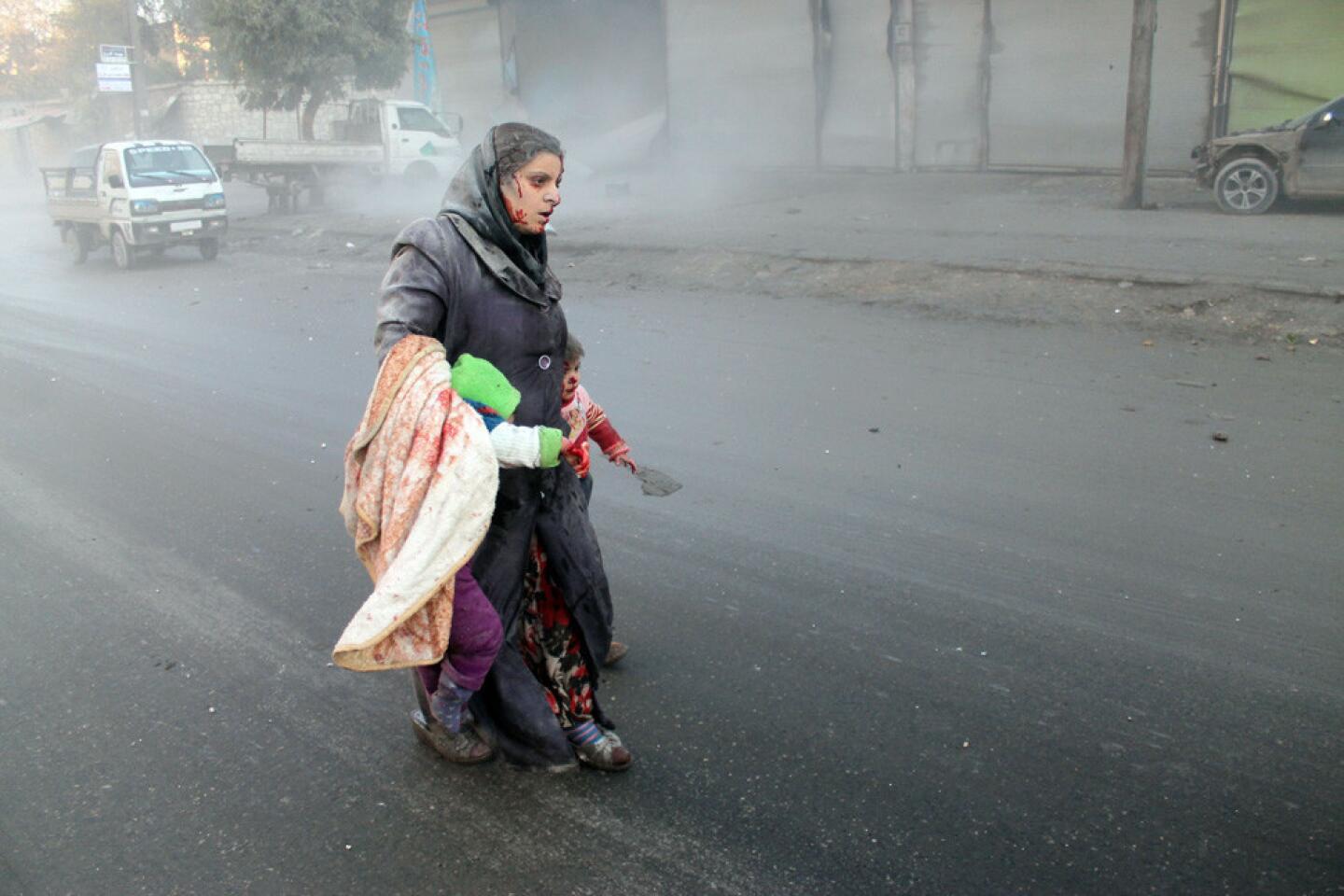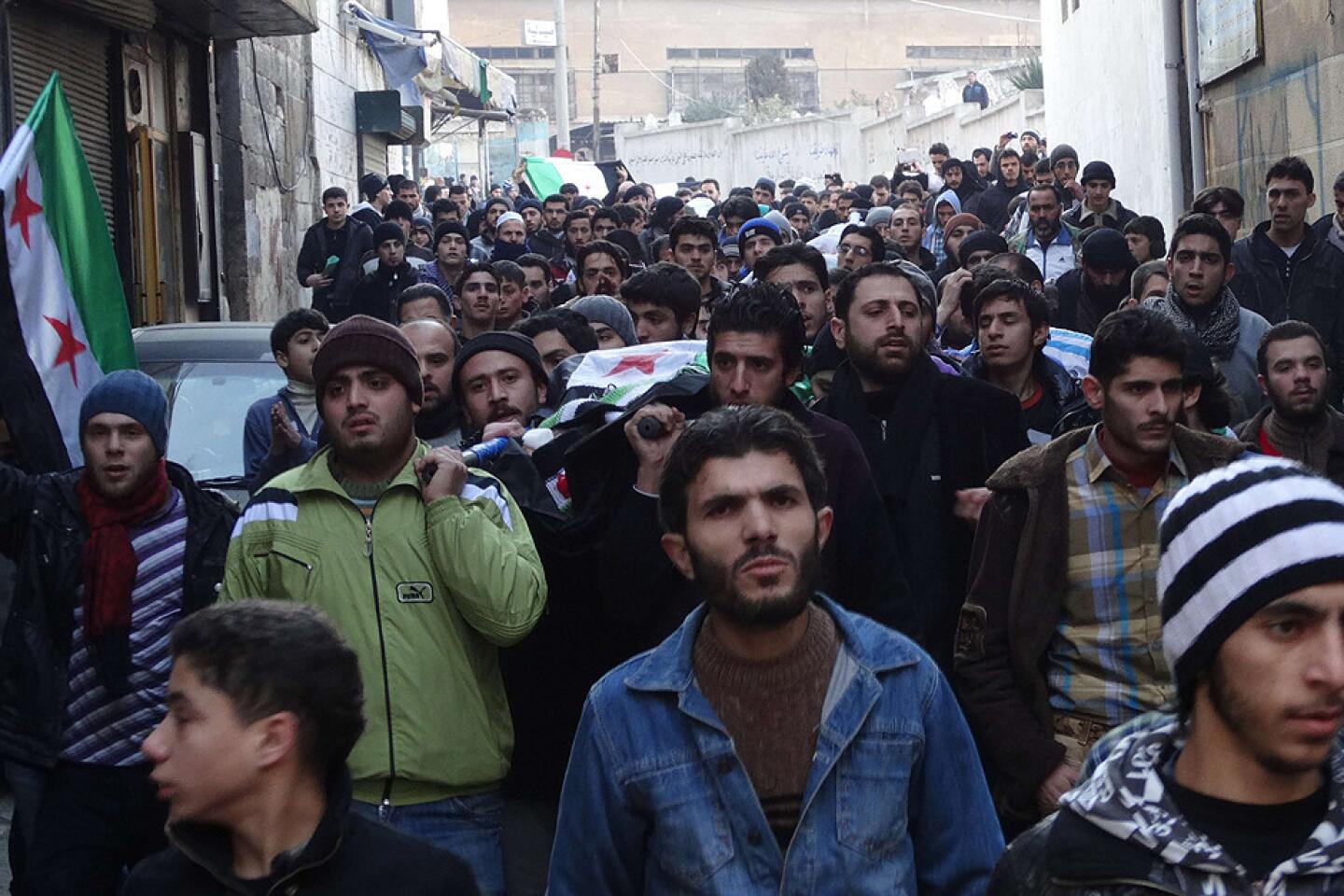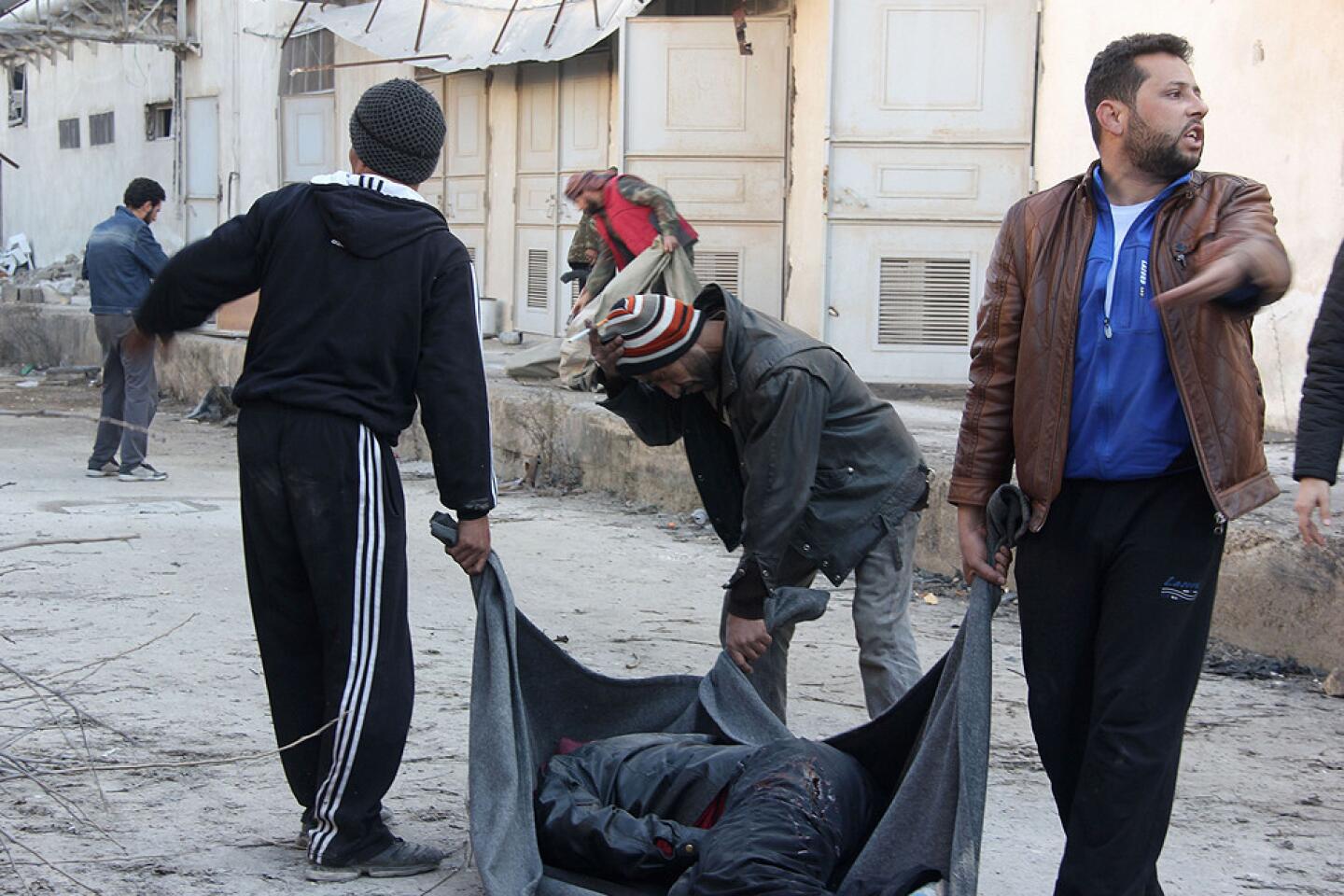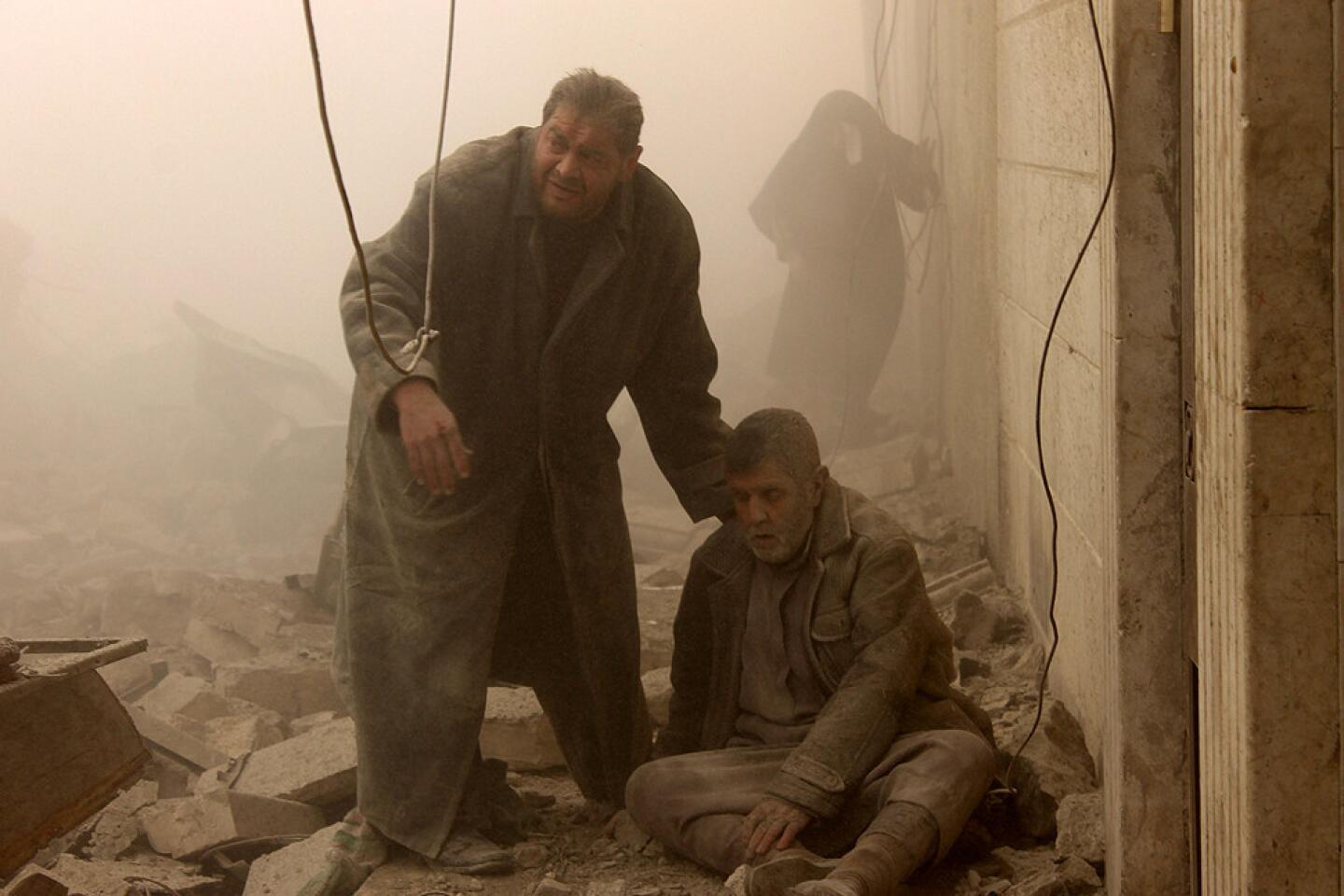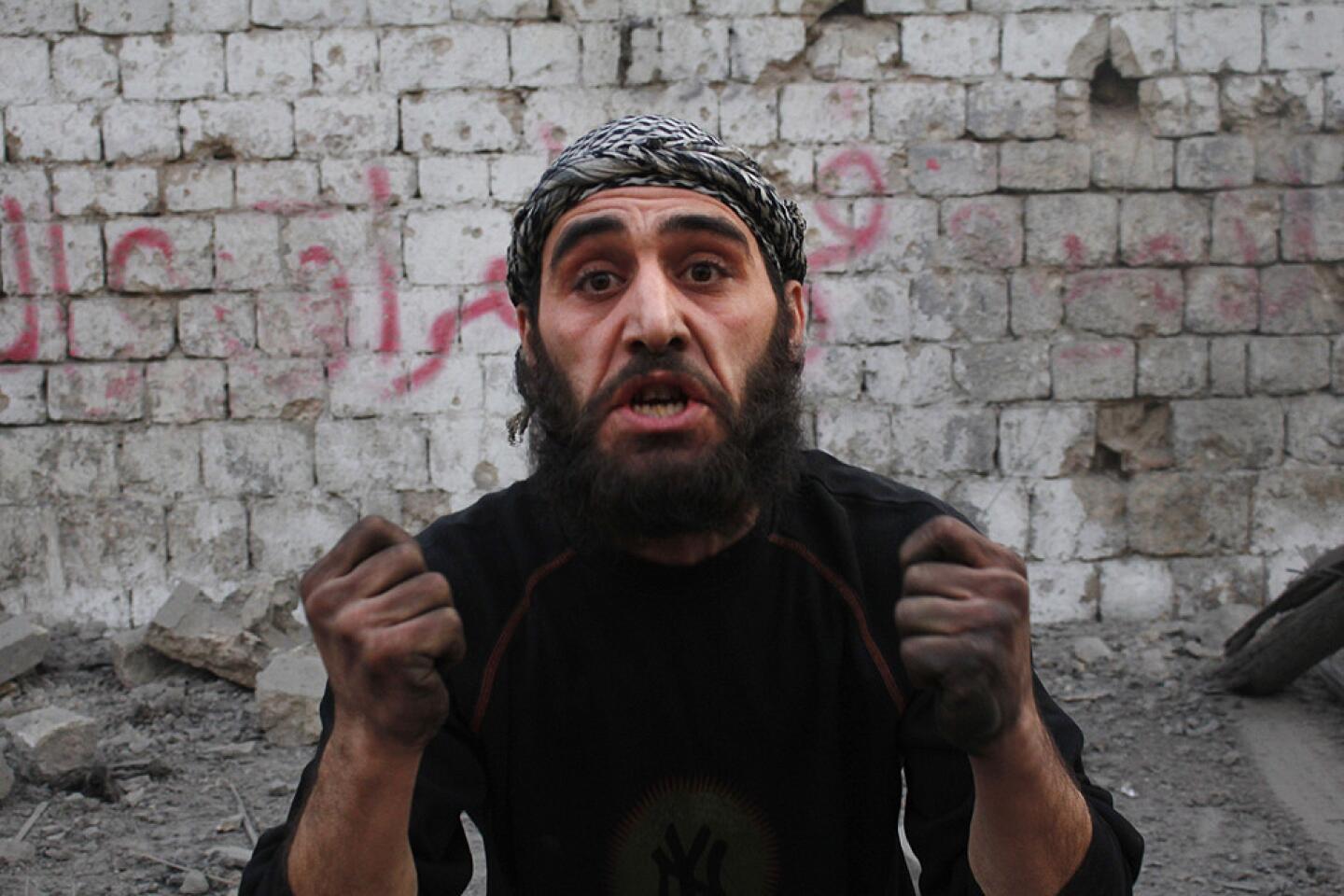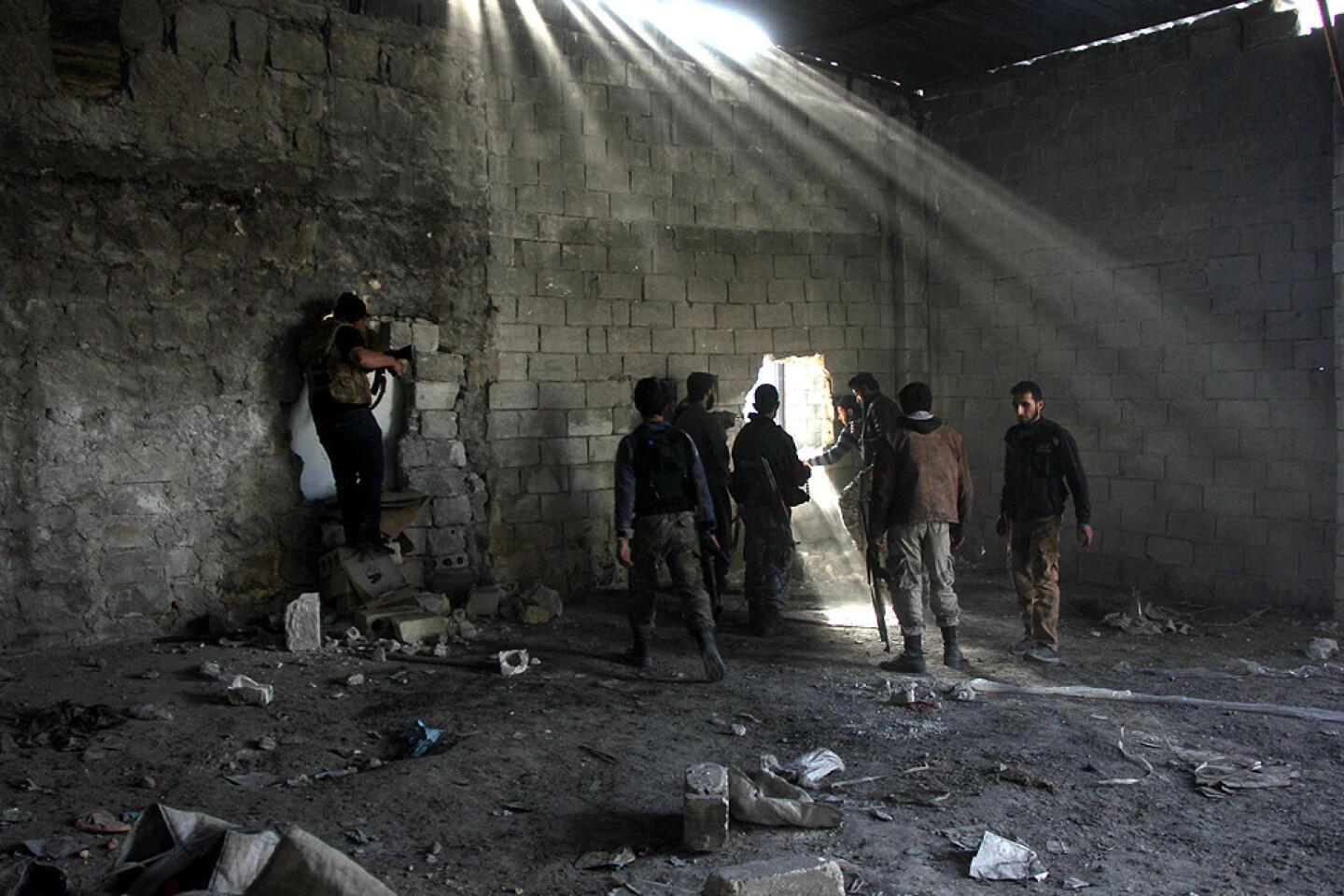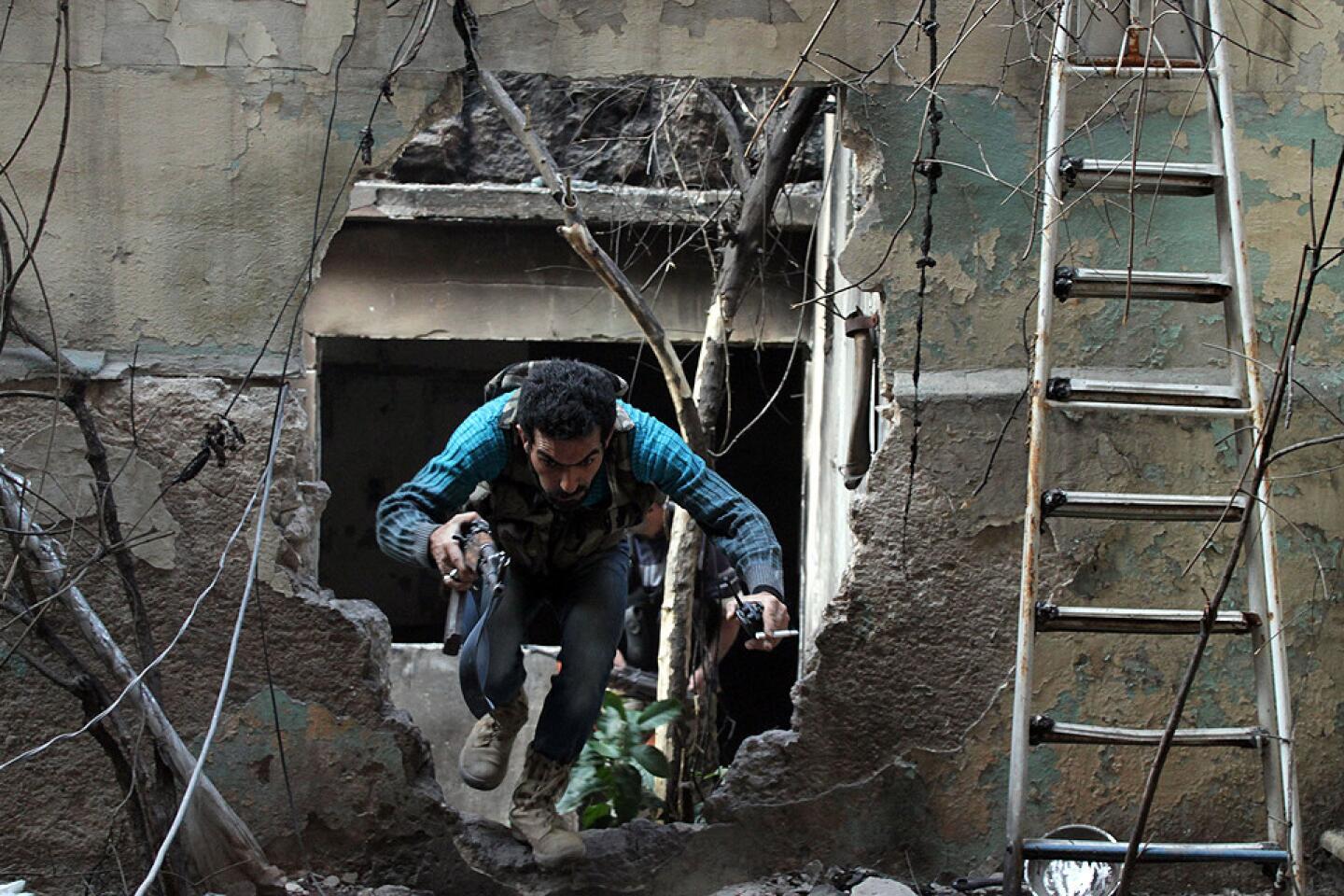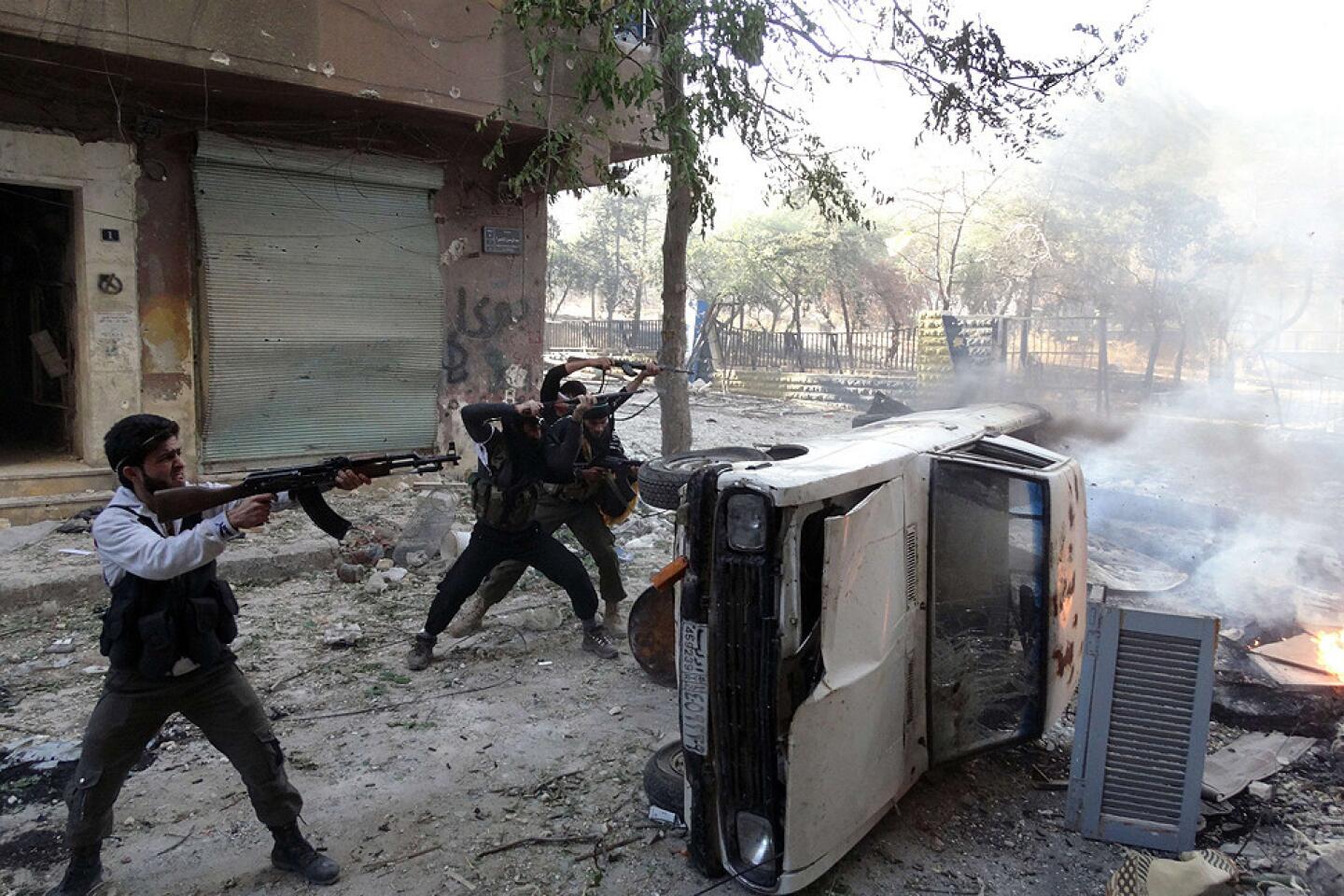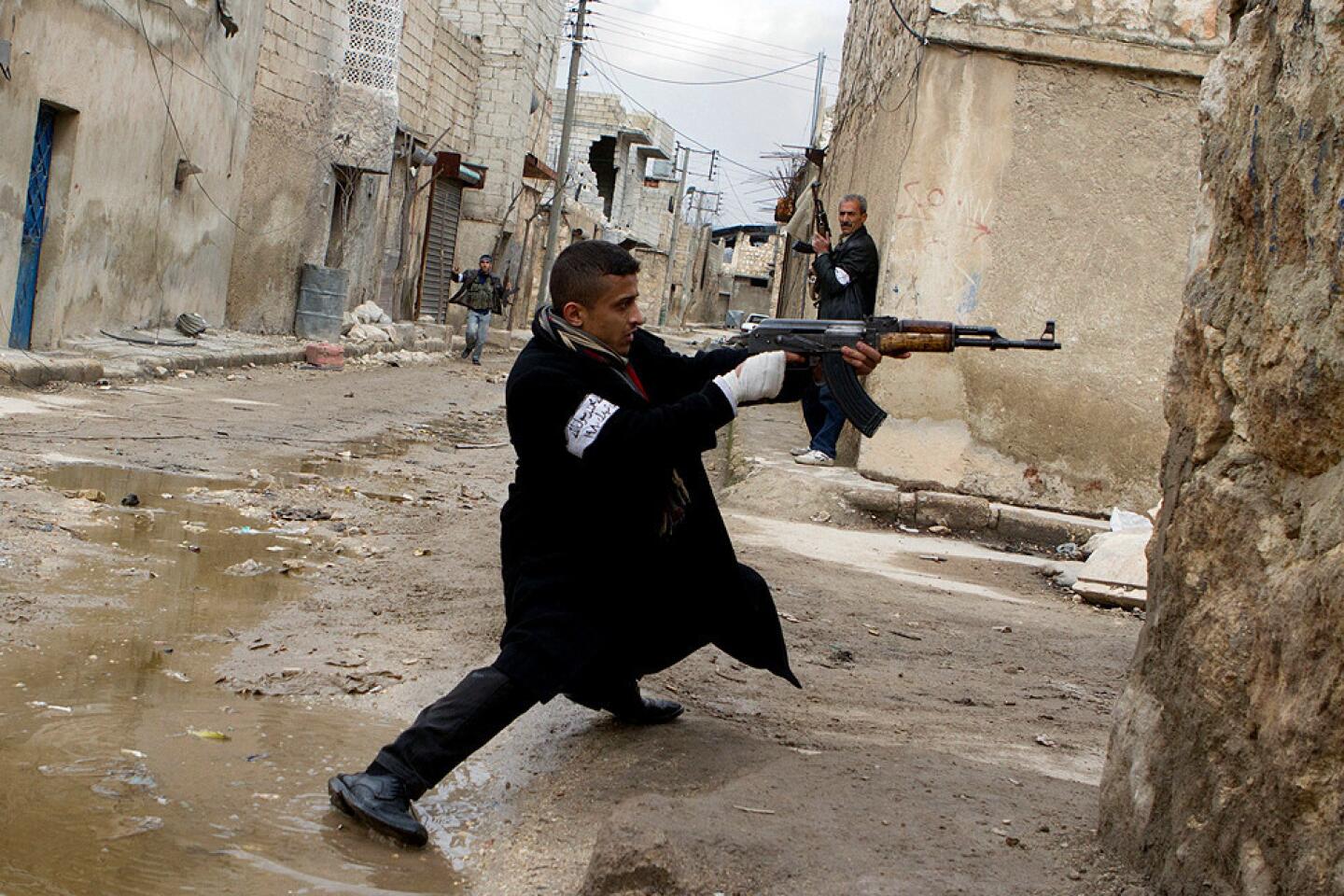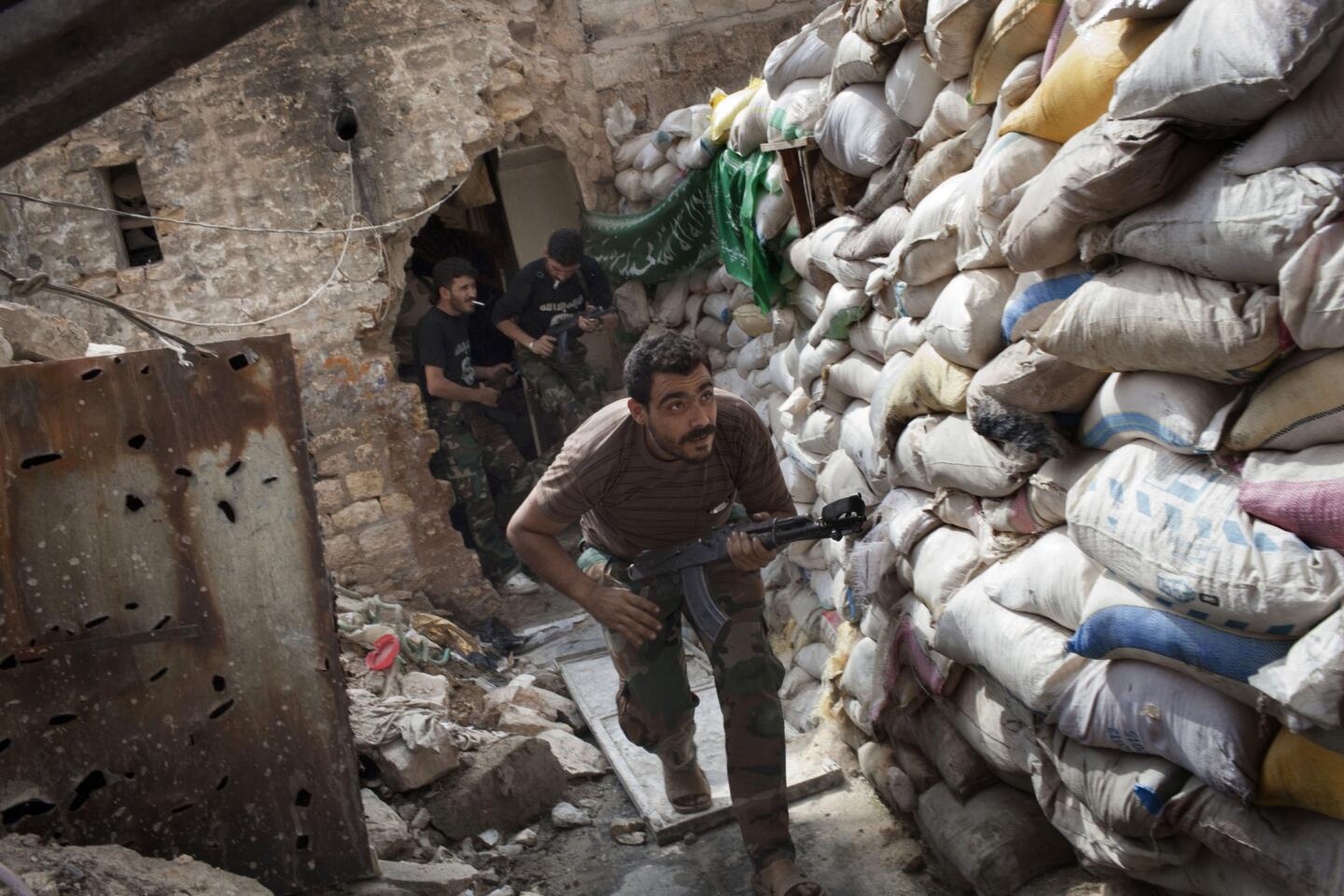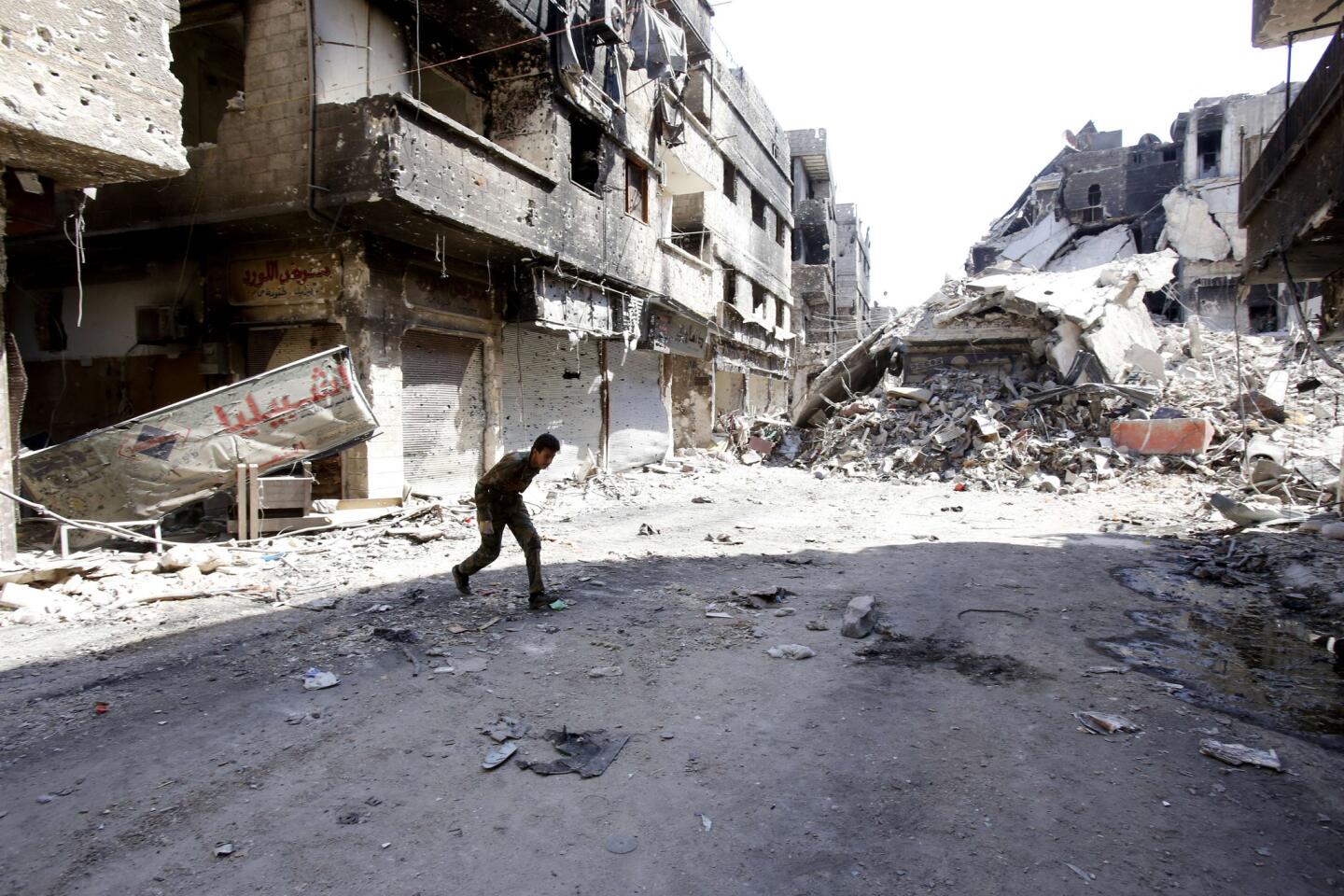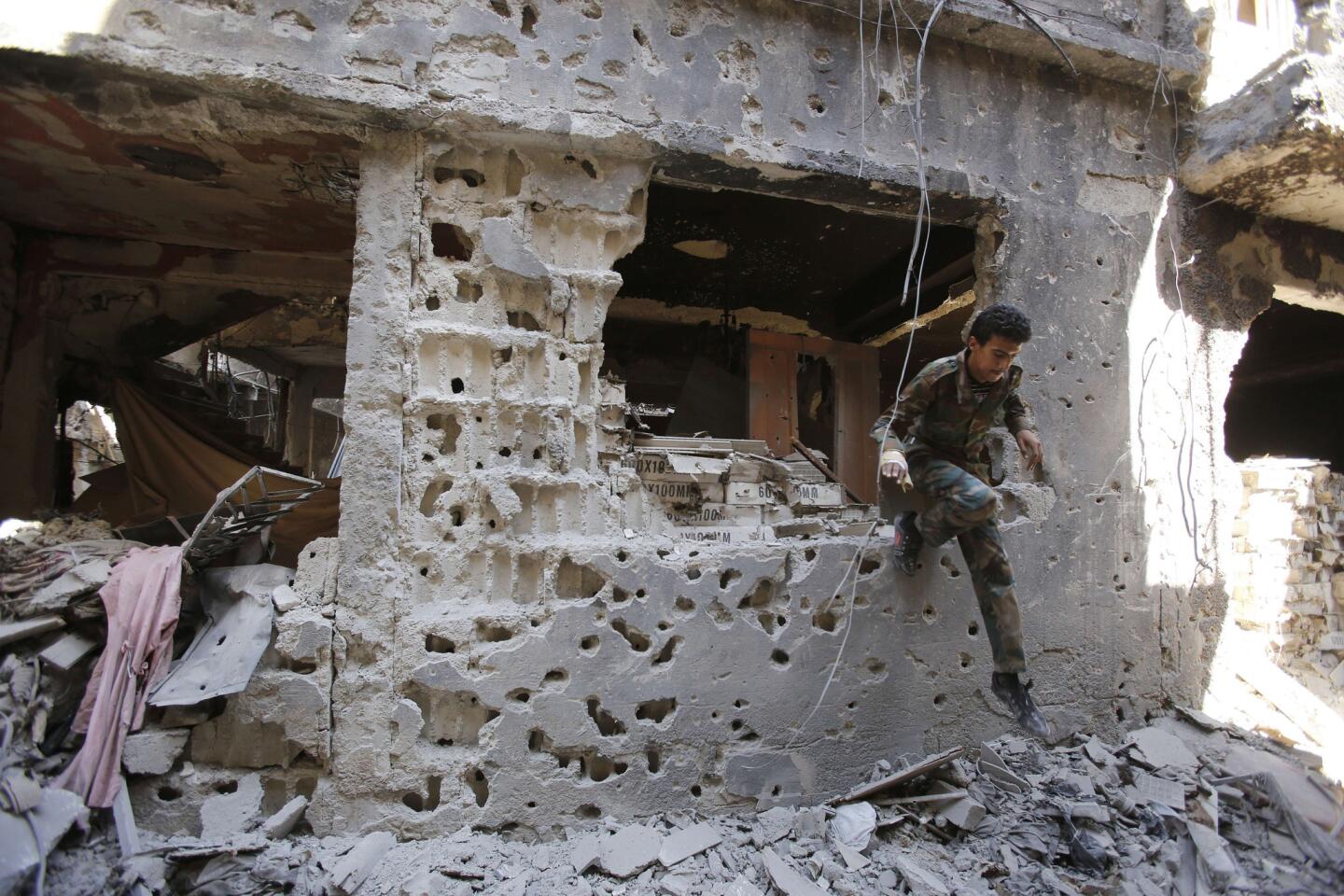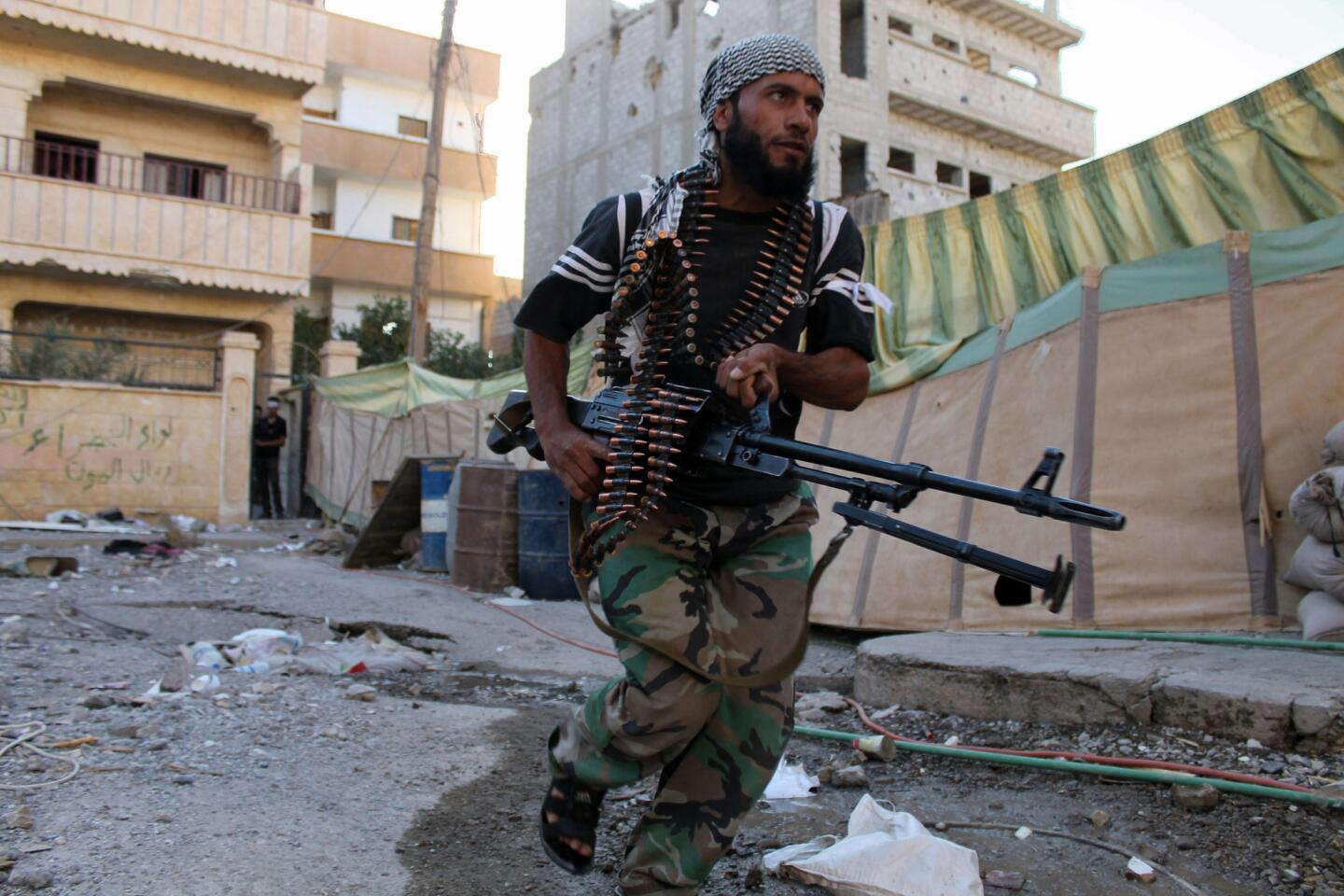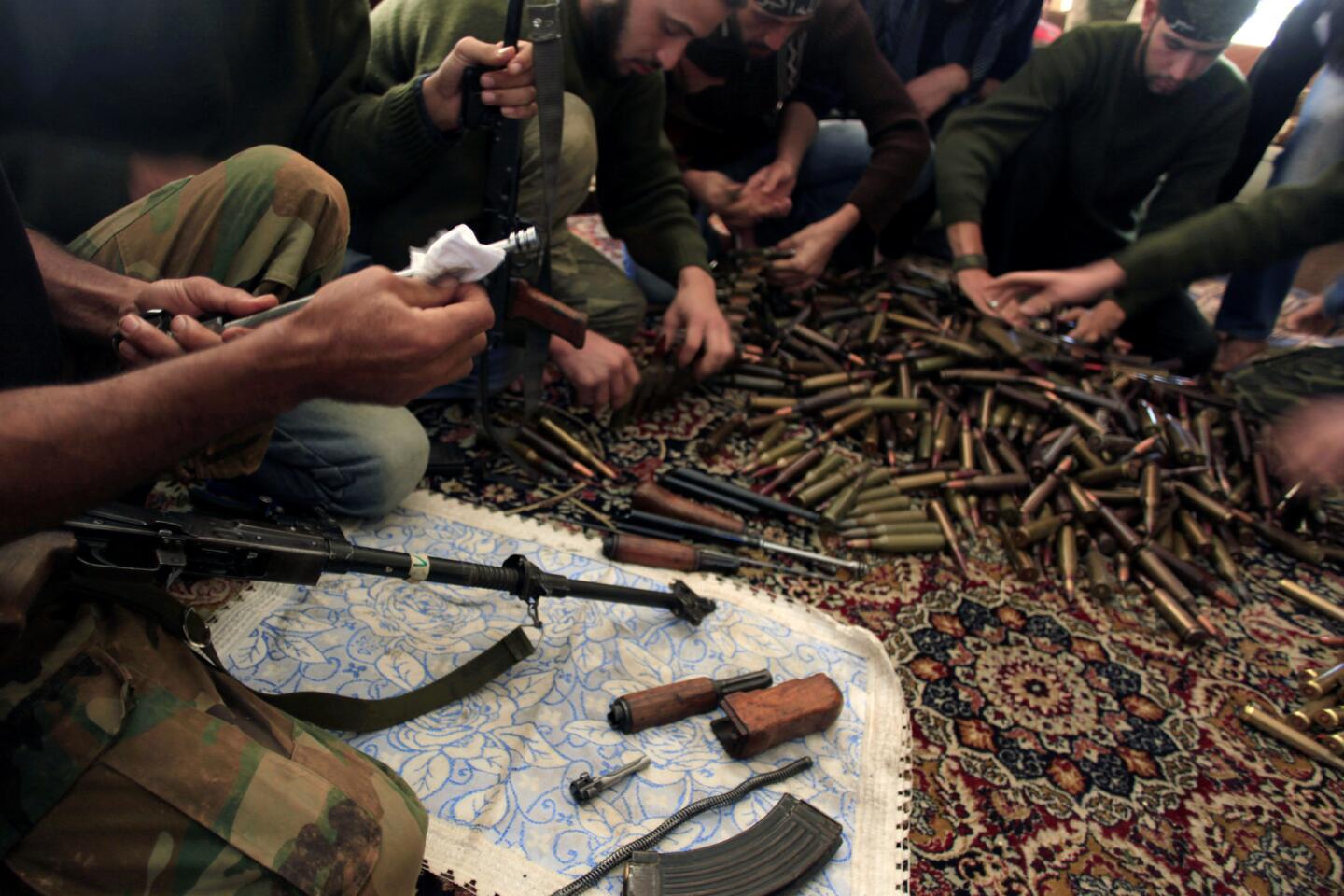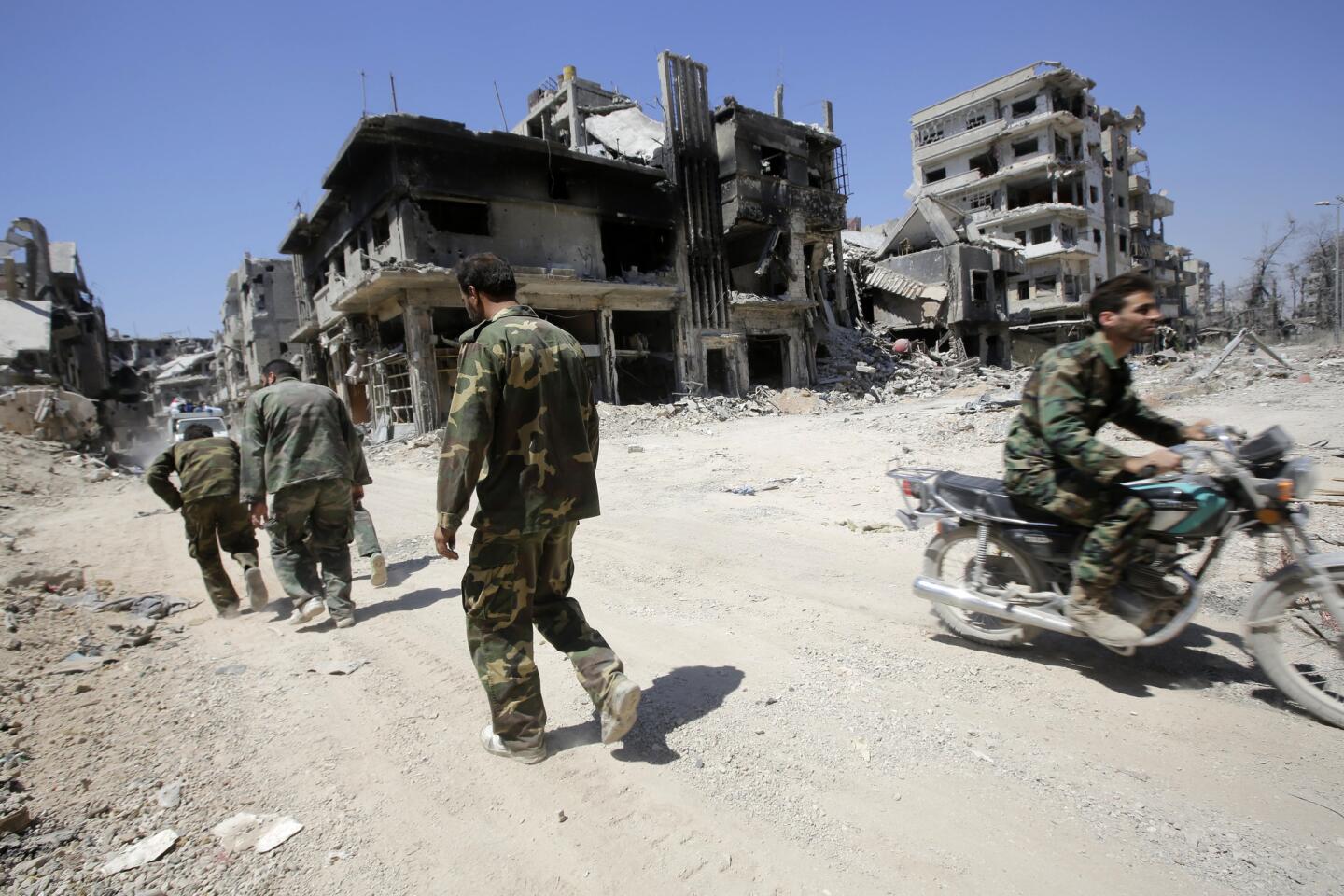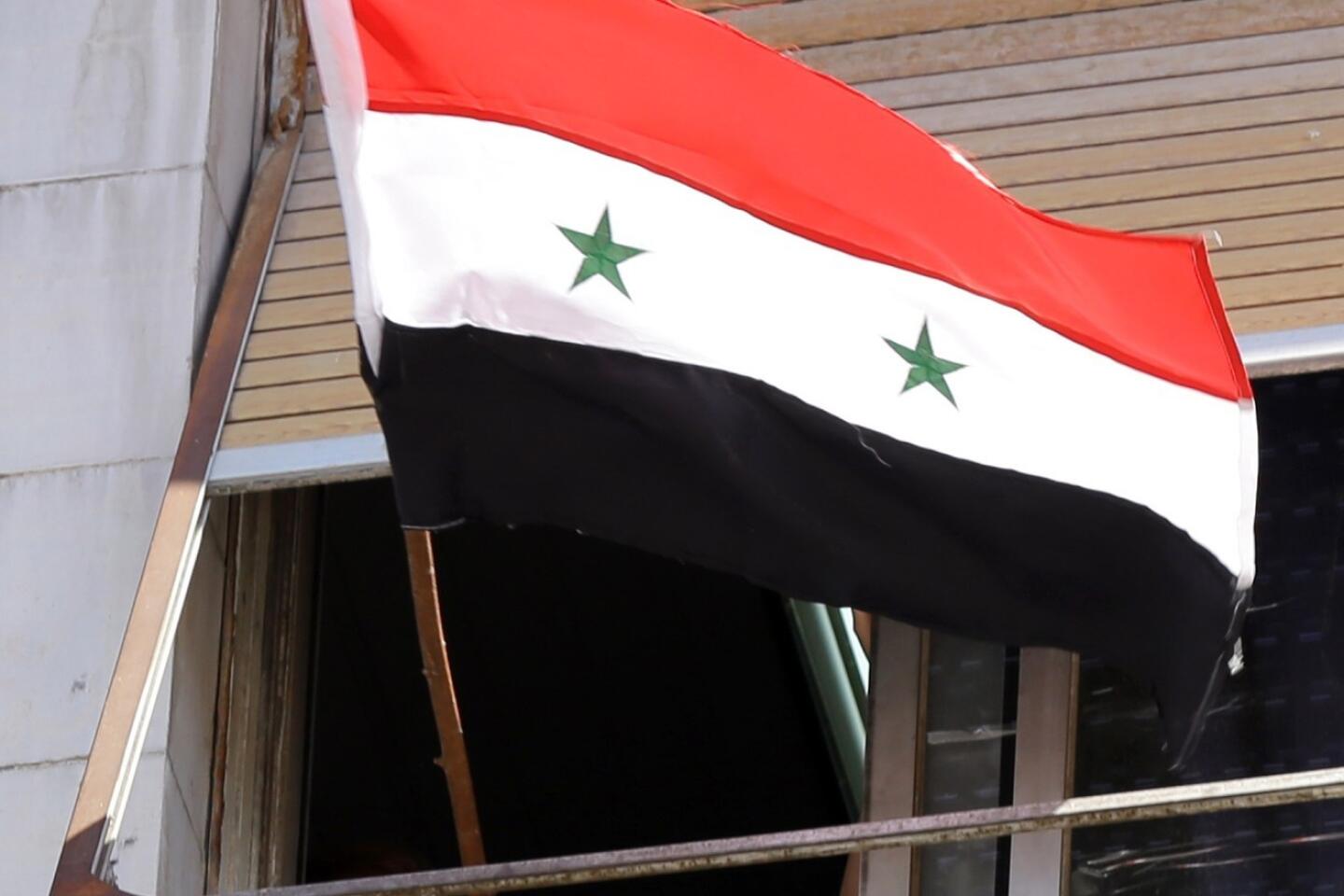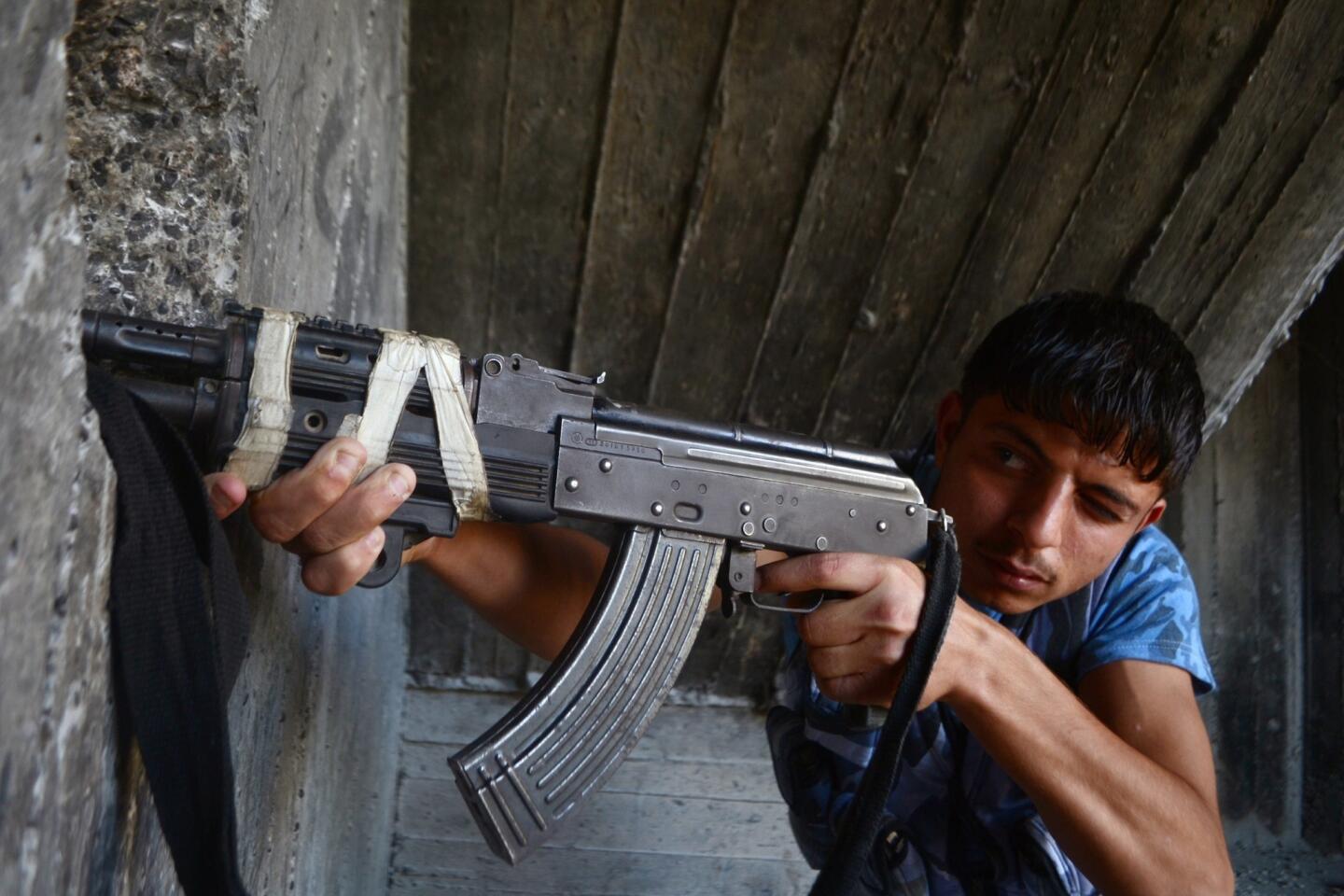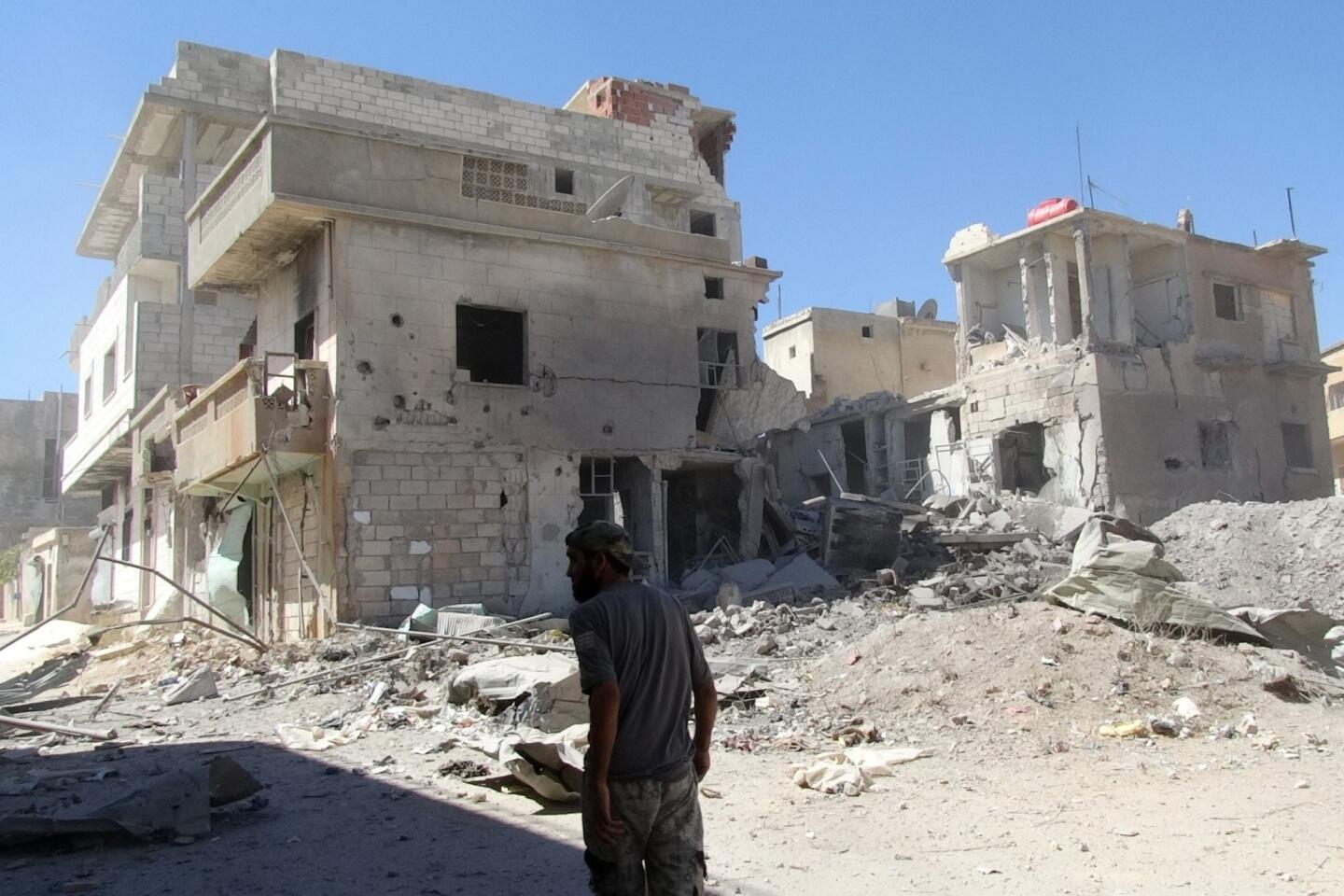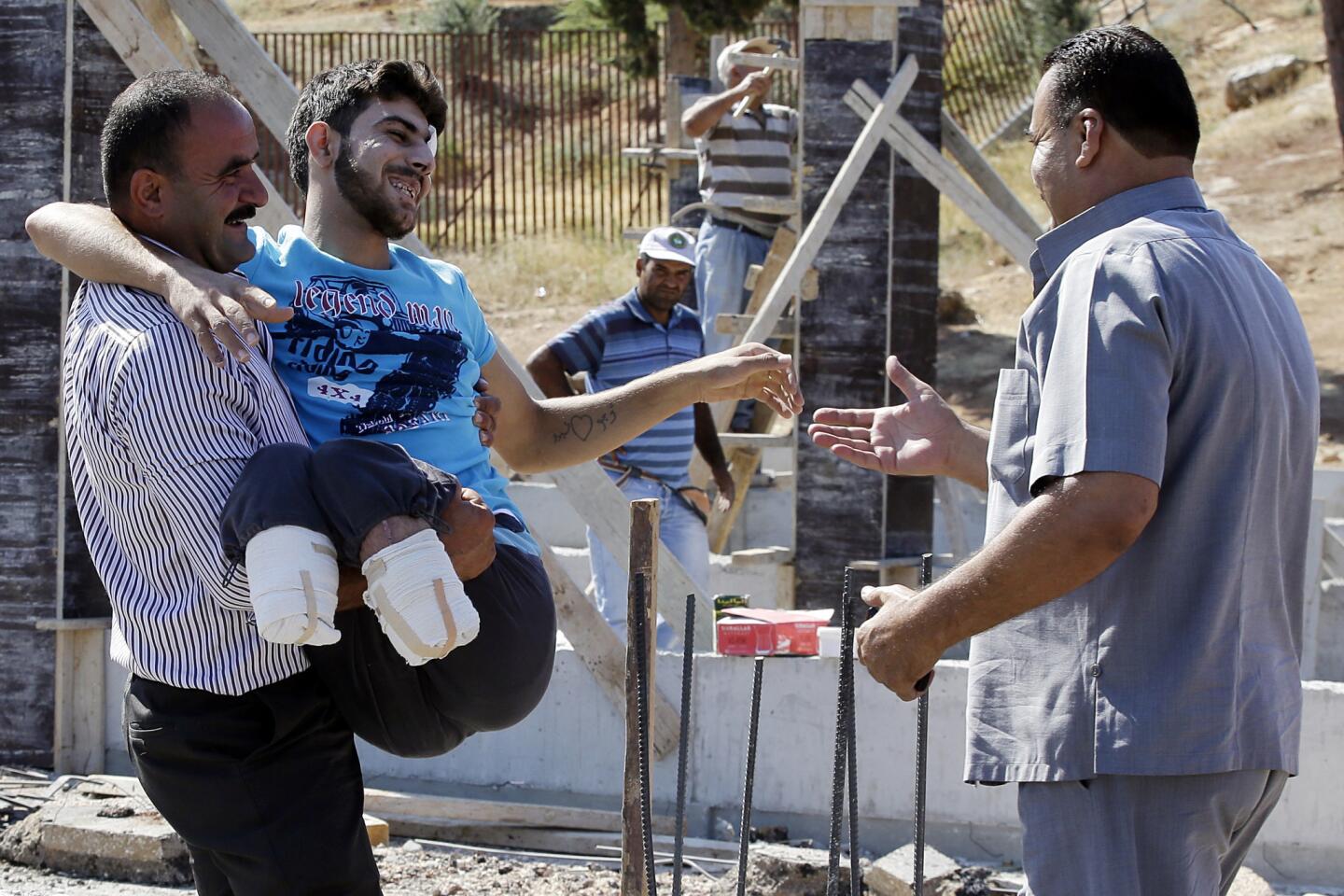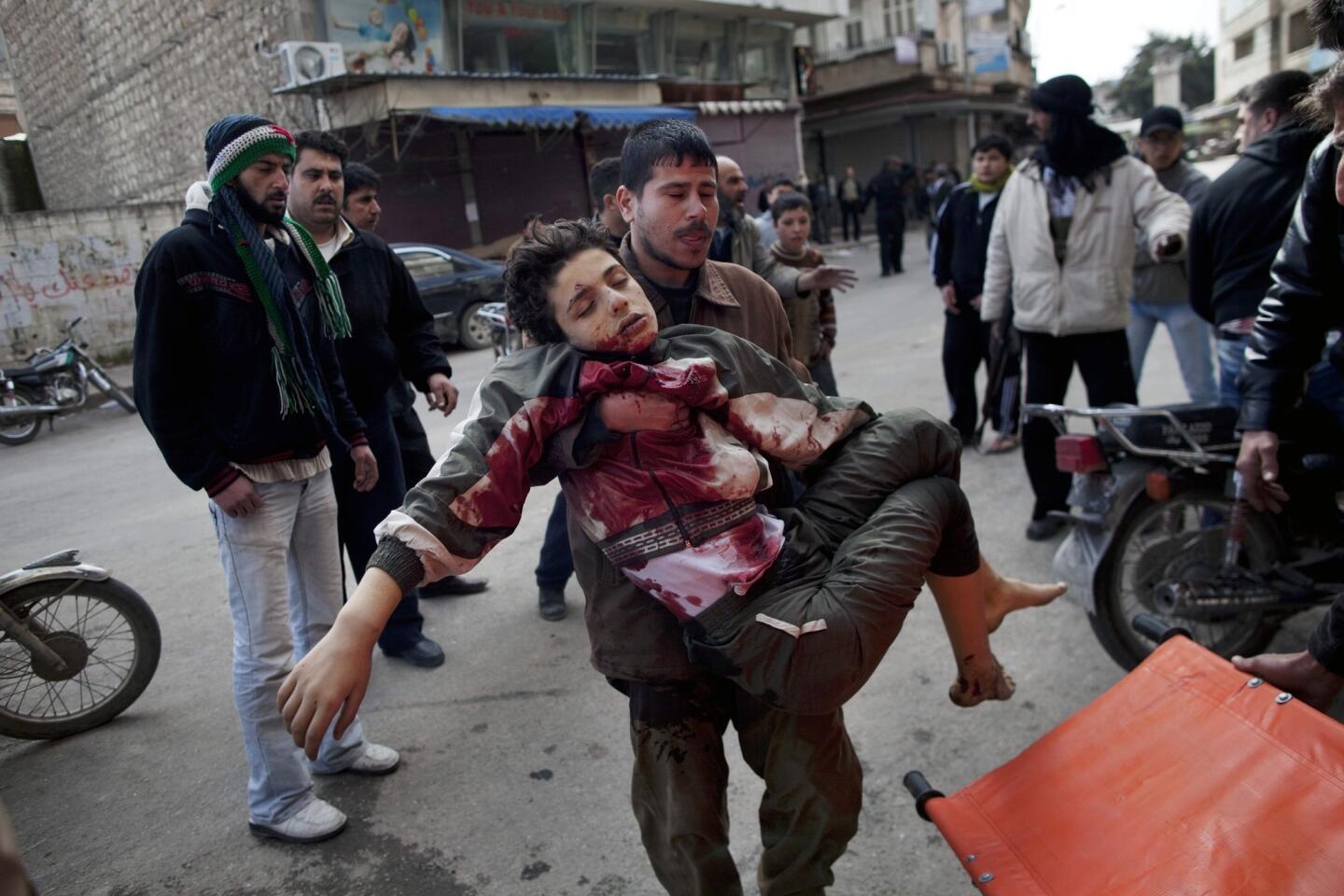Syria’s Assad uses the truce as latest weapon against rebels
BEIRUT — In the lead-up to the so-called Geneva II peace conference this week, the Syrian government has quietly pursued a campaign of truce-making with opposition-held communities in and around Damascus that could further weaken the opposition movement and bolster President Bashar Assad’s global standing.
For months, the government has been negotiating cease-fires with civilian leaders of neighborhoods and suburbs of the capital that have been under the control of opposition fighters and therefore under bombardment and sieges that have kept food and medicine from reaching residents.
In what some in the opposition view as the latest setback for the uprising against Assad, deals have been struck with civilian committees or activists to raise the government flag, hand over weapons or expel rebel fighters in exchange for essential supplies and an end to the government attacks.
Just as the deal with world powers to remove Syria’s chemical weapons made Assad a partner with some of the very nations that have called for him to resign, these local truces could help reassert his legitimacy not only at the upcoming peace conference but also in this year’s presidential vote. Assad has not ruled out running for reelection.
“The regime is trying to pacify the situation on the ground before it goes to Geneva II,” said Susan Ahmad, an activist in Damascus. Assad “wants to give the illusion to the international community that he is in control of a large part of the country, even if it’s superficial. This way he can negotiate with a strong tone.”
An aide to Ali Haidar, the minister of national reconciliation, said the truces were part of an overall reconciliation process and an attempt to steer Syrians away from violence and toward a political process.
The aide, who spoke on condition of anonymity, denied they were meant to force the opposition into submission.
“The ultimate goal is to help people turn to the political domain,” he said. “Most Syrians are now convinced that violence will not take us anywhere.”
Truces have been reached, with varying degrees of success, in a number of neighborhoods and suburbs around Damascus.
Nearly 250,000 Syrians have been cut off from food and other aid — by government as well as rebel forces — as a “weapon of war,” Valerie Amos, the United Nations humanitarian chief, said Wednesday at an aid conference in Kuwait.
In Damascus’ Yarmouk camp, home to displaced Syrians and Palestinian refugees, a truce fell apart at the last minute when a U.N. aid convoy came under attack Monday and was forced to turn back. The government aide said “radical jihadi groups” trying to undermine the truce were behind the attack. The opposition accused Lebanese and Iraqi Shiite militant groups loyal to Assad.
More than 50 people have reportedly died of starvation in Yarmouk, said Rami Sayid, an activist in the camp. U.N. Relief and Works Agency spokesman Christopher Gunness said the number could not be confirmed but that “reports of widespread malnutrition give credibility to reports of starvation deaths.”
Food finally reached the camp Saturday as a result of a cease-fire agreement, Palestinian officials said.
In the Dariya suburb of the capital, where negotiations for a truce ended soon after they began, residents said they had been under heavy bombardment from barrel bombs this month, and activists also said that three residents had died from a poison gas attack. There has been no independent verification of the allegation.
If the truces do last, they could become “a road map” for Assad to negotiate with the opposition and in effect accept its surrender, said Joshua Landis, director of the Center for Middle East Studies at the University of Oklahoma.
“They’re pacifying these neighborhoods.... They have created a wasteland and they’re calling it peace,” Landis said. “These truces being brokered, in a way, are Assad telling the world, ‘I’m here, I’m reconquering this territory and you’ve got to come to terms with me because you have no other choice.’”
On Friday, the Syrian foreign minister proposed a cease-fire and prisoner exchange in the northern city of Aleppo, which is divided between rebel and government forces. Opposition leaders, though, quickly rejected any notion of a deal with Assad.
For activists and rebel fighters in the Damascus area, feelings are mixed about what these truces mean. Some see it as a victory to have been able to fight off government attempts to storm and retake their towns and neighborhoods and in the end negotiate a truce. Others see the agreements as a humiliating capitulation.
“Using starvation as a weapon of war finally paid off for the regime,” said Qusai Zakarya, an activist in the suburb of Muadhamiya, who spent 33 days on a hunger strike to draw international attention to the town’s plight. “It’s very painful and shameful after all these sacrifices to end up with such humiliating conditions with the Assad regime. I’m not saying the battle is over, but he has definitely won this round.”
On Dec. 25, the government flag was raised over Muadhamiya. It had been under siege for more than a year, resulting in the starvation of several residents, including children. Two days later, the government sent in several vehicles carrying food that residents said was enough for only one meal per person, far less than what was agreed upon.
Since then, more food has trickled in, and some sick and injured people have been allowed to get medical care in exchange for a number of new concessions from the residents, including handing over an armored vehicle and dozens of light weapons.
Now the government is demanding that the town turn in all military defectors to “settle their portfolios.” Residents and activists who have opposed this say they have been threatened by town leaders who want to put an end to the dire living conditions.
In the Barza district, which had been under siege for 10 months, a truce is gradually being implemented, allowing bread to be brought in and streets to be cleaned of spent shells.
More than 80% of Barza is damaged in some way, said Youmna Dimashqi, an activist from the neighborhood.
Video released by state media last week showed the mayor of Damascus, Bishr Sabban, touring parts of Barza that have been decimated by months of bombardment. The most important thing is rebuilding the area’s infrastructure, he said. “This could give [Assad] new popular support from people who are now solely concerned with living.”
Abdulrahim reported from Los Angeles and McDonnell from Beirut.
More to Read
Sign up for Essential California
The most important California stories and recommendations in your inbox every morning.
You may occasionally receive promotional content from the Los Angeles Times.
